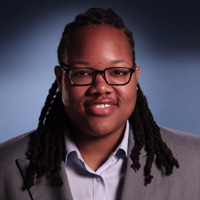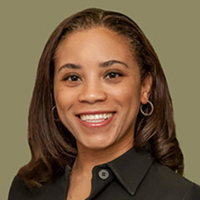Strengthening advocates’ ability to address inequities allows them to champion racial equity both within their organizations and the communities they serve.
May 19, 2021
The framework we use to convey ideas and concepts is important. Language often reflects and fosters cultural norms and latent bias against marginalized people, including Black, Latino/a/x, Indigenous, and immigrant communities. But language can also affirm racial justice. Understanding and using key constructs can help advocates better frame issues through a racial justice lens. And changing our vocabulary about racial bias supports important narrative change about the relationship between race, power, and privilege.
The Shriver Center on Poverty Law’s Racial Justice Institute (RJI) helps advocates better understand how to think systemically and equips them with the vocabulary to communicate important dynamics and complexities at the intersection of race and poverty. Reflecting on their experiences, RJI alumni agree that the tools and concepts they learned in RJI have had an impact on their ability to communicate effectively about race equity.

With a staff of more than 300, Chrishana White, the Director of Diversity, Equity and Inclusion at Brooklyn Defender Services (BDS) is always eager to adopt new tools that can help advance organizational goals. “Sometimes we know what concepts mean in our minds, but we don’t know how to explain or articulate them to other people,” said White, RJI 2020 Fellow. “RJI really helped me articulate concepts to other people using concrete examples that—no matter what your entry point is—make it more accessible to others. That’s what I was really looking for.”
White described how she has been able to use the concepts of “systems thinking”—understanding how component parts of complex systems work together over time to distribute advantage and disadvantage along racial lines—to frame her team’s advocacy work. White has also used the “iceberg model”—a model for visualizing patterns of behavior or structures that support a particular outcome—to shift perspective on the issues BDS clients face.
“When you can apply these concepts to complex challenges, it gives you more credibility,” said White. “Having the confidence to now explain these concepts to people makes me more comfortable talking about equity issues, and this has helped me become the face of DEI at my organization.”

Vocabulary can also reinforce shared values and a vision for race equity. Aisha Edwards, MacArthur Foundation Senior Criminal Justice Program Officer and a RJI 2020 Fellow, learned this first-hand in her work on MacArthur Foundation’s Safety and Justice Challenge, a program that support cities, states, and counties in rethinking justice systems and implementing data-driven strategies to safely reduce jail populations.
“Developing a common language for MacArthur’s Safety and Justice Challenge was something we were inspired to do as a part of our work with RJI,” said Edwards. “We developed a glossary for our grantees so that we all understand what we mean when we say ‘racial justice’ and so we can try to get on the same page with language.”

Cheryl Kleiman, a staff attorney at the Education Law Center in Pittsburgh, uses communication tools to push back against disciplinary measures that disproportionally impact students of color. “Children should be able to make mistakes, and caring adults should respond appropriately to those mistakes,” said Kleiman. “Using messaging guidance I learned in the Racial Justice Institute, we began calling students ‘children’ or ‘young learners’ in our communications to build empathy for our clients.” Alongside her community partner Education Rights Network, a parent-led organization that works to achieve inclusion and equity for all students in Pittsburgh Public Schools, Kleiman has successfully led the #SolutionsNotSuspensions campaign. The campaign helped end suspensions for pre-kindergarten to second grade students in Pittsburgh Public Schools.
Strengthening advocates’ ability to address inequities allows them to champion racial equity both within their organizations and the communities they serve. The Racial Justice Institute provides advocates a wealth of tools, including a shared foundation and vocabulary to express ways people of color have been systematically oppressed in America. This communications framework helps RJI Fellows align staff within their organizations and establish themselves as race equity leaders within their communities.
Now in its eighth year, the Racial Justice Institute has announced that 47 new fellows from 16 organizations in 10 states will be joining the program in 2021. Learn more about the Racial Justice Institute and Network.
Madeleine Parrish and Chloe Yin, both interns from the University of Chicago’s Institute of Politics, gathered stories from RJI alums and contributed to this post.